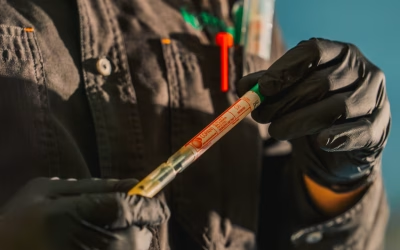Acupuncture has expanded greatly in recent years as more individuals choose this age-old technique for wellness and holistic healing. Pursuing an Acupuncture Master’s Degree can be a professional turning point if you are driven by natural medicine and helping people reach optimal health. Along with deepening your knowledge of acupuncture, this advanced degree gives you the tools and abilities needed to succeed in this fulfilling career.
The Advantages :
Obtaining an acupuncture master’s degree has several advantages beyond personal and professional development. The thorough education you get, covering a wide spectrum of disciplines including traditional Chinese medicine philosophy, acupuncture techniques, herbal medicine, and clinical practice, is among the main benefits. This all-encompassing strategy guarantees that graduates are well-rounded practitioners equipped to treat several medical disorders.
Furthermore, improving your credibility and marketability in the healthcare sector requires an acupuncture master’s degree. Having a master’s degree will distinguish you from other practitioners, given the increased need for alternative and complementary therapies. It shows a great degree of field-specific knowledge and commitment, which will draw more business and create doors to higher career paths, including teaching, research, and leadership roles in medical institutions.
Moreover, the demanding instruction and practical experience acquired during an acupuncture master’s degree program help you get ready for certification and licensure. To operate lawfully, several governments and nations want acupuncturists to be masters. Thus, finishing this degree guarantees that you satisfy the legal criteria to open a successful practice, in addition to arming you with the required abilities.
Curriculum and Educational Opportunity
The acupuncture master’s degree program’s curriculum is meant to give a complete awareness of both the theoretical and practical facets of acupuncture. Learning about the body’s energy paths, or meridians, and how to balance the flow of energy, or Qi, students explore the ideas of traditional Chinese medicine. To mix Western medical knowledge with traditional methods, courses sometimes include anatomy, physiology, pathology, and diagnostic techniques.
An acupuncture master’s degree is dependent on practical training. Through supervised clinical internships, in which they apply their knowledge in practical environments, students acquire hands-on experience. Developing the skills and confidence required to treat patients successfully depends much on this experience. Students also learn about herbal medicine, nutrition, and lifestyle counselling so they may provide complete treatment addressing the underlying causes of medical problems.
Many Master of acupuncture degrees also stress research and evidence-based practice. Research projects are encouraged by students, thereby augmenting the already increasing corpus of scientific knowledge on acupuncture and its advantages. This component of the study guarantees that graduates are knowledgeable about the most recent developments in their profession and promotes critical thinking.
Professional Development and Occupational Prospectives
After earning an acupuncture master’s degree, alumni have a great variety of job options at their disposal. Many decide to open their private businesses, providing clients looking for alternative health options with customized acupuncture treatments. Others might cooperate with other medical experts in integrated health clinics to offer complete treatment.
For people with an acupuncture master’s degree, teaching and mentoring are other good career routes. There is increasing demand for skilled teachers to train the following generation of practitioners as the popularity of acupuncture keeps rising. Teaching roles in acupuncture colleges and universities let seasoned acupuncturists share their skills and help the field grow. prospects.



